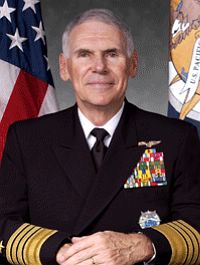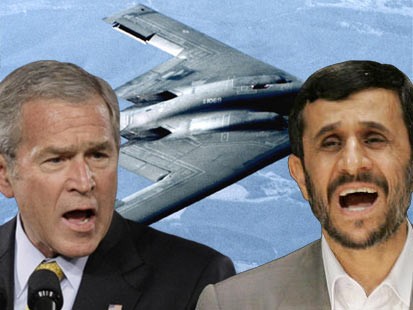
We firmly believe (a pdf file) there is probable cause for such an investigation. The case for investigation is based on three pillars:
1) evidence of cover-up and a lack of serious investigation after the fact;
2) evidence of misconduct on the day of 9/11
3) evidence of foreknowledge and preparation before September 11th.
Undertaking a full-scale, truly independent investigation is imperative, not only because there must be justice for the victims, but also because of the role 9/11 has played in justifying policies of aggression supposedly justifed by 9/11 must be halted, and a shattered public trust must be repaired.
During their 2002 inquiry, the Congressional joint intelligence committees(who redacted 1/4 of their report) were scrutinized by an FBI counter-investigation, which invaded the Senate in search of an alleged leak. It was widely believed that the FBI investigation may have been intended to have a chilling effect on the conduct of the Congressional Joint Inquiry.
- The Congressional investigation failed to pursue solid evidence of a money trail to the alleged hijackers from the US-allied Pakistani intelligence agency (ISI). The ISI chief was removed from his post when strong evidence of his connection to the plot surfaced in early October 2001, but no serious punitive action was taken against him.
- Evidence was destroyed or withheld, including suppression of the discovery of black boxes from the two flights at Ground Zero and the destruction of tapes made by the air traffic controllers who handled the same flights.2
- Whistle blowers such as FBI translator Sibel Edmonds and Anthony Shaffer of “Able Danger” were disciplined or fired, even as FBI, CIA, and military officials who were blamed for failures received promotions and medals.
- The September 11th relatives who lobbied for the 9/11 Commission (after 14 months of White House resistance) submitted 400 questions that Commissioners accepted as a “roadmap.” 70 percent of the questions were fully ignored in The 9/11 Commission Report. Many of the relatives later declared the Report a whitewash.3
- 9/11 Commissioner Max Cleland resigned in late 2003, calling the panel a whitewash and saying, “Bush is scamming America.” There was no significant response or inquiry from anyone else in government, or the major media.4
- Philip Zelikow, the 9/11 Commission executive director who over saw the panel’s activities, refused to step down after the September11th families called for his resignation due to grave conflicts of interest (close association with Condoleezza Rice, member of White House national security staff both before 9/11 and in 2002, member of Foreign Intelligence Advisory Board).
- Rice may have committed perjury in her April 2004 Commission testimony that an August 2001 Presidential Daily Briefing to Bush was only of “historical significance,” when in fact it detailed current intelligence.
- The 9/11 Commission Report claimed the financial background of the attacks was unknown, but dismissed the question as being of “little practical significance” (page 172). Since when doesn’t an investigation “follow the money”?
- Large sections of the report are based on the confessions of “enemy combatants” such as Khalid Sheikh Mohammed, as provided in the form of transcripts by the government. The 9/11 Commission staff was not allowed to see or interview any of these “enemy combatants.”
- Over a period of several years, NORAD, FAA, White House and military officials gave widely divergent and conflicting accounts of the air defense response to 9/11, but no one was ever held accountable for upholding falsehoods. The 9/11 Commission chairs later admitted they considered a criminal investigation of NORAD’s statements, but preferred instead to present a unanimous report.
- The focus of the Commission will be on the future. We’re not interested in trying to assess blame. We do not consider that part of the Commission’s responsibility. – Lee Hamilton, 9/11 Commission vice-chairman.
The above is only a sampling of a large body of official misconduct after the fact. What is being hidden?
Read further here ( Note : All in Pdf format)
1. Whitewash as Public Service
2. Millions of New Yorkers Question the Official Story of 9/11
3. Connecting the Dots
4. Scamming America: The Official 9/11 Coverup Guide
Other Links Top 40 Reasons to Doubt the Official Story of September 11th, 2001








